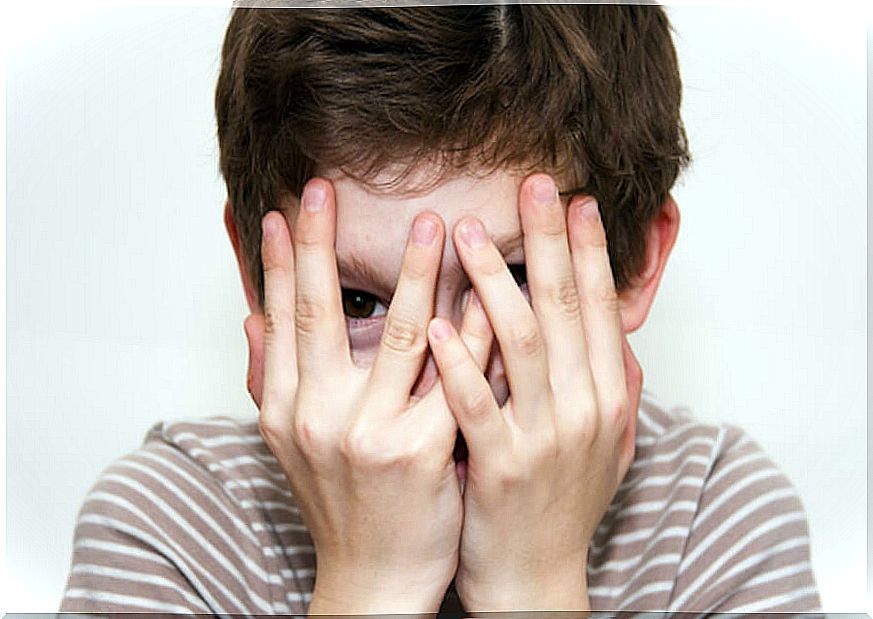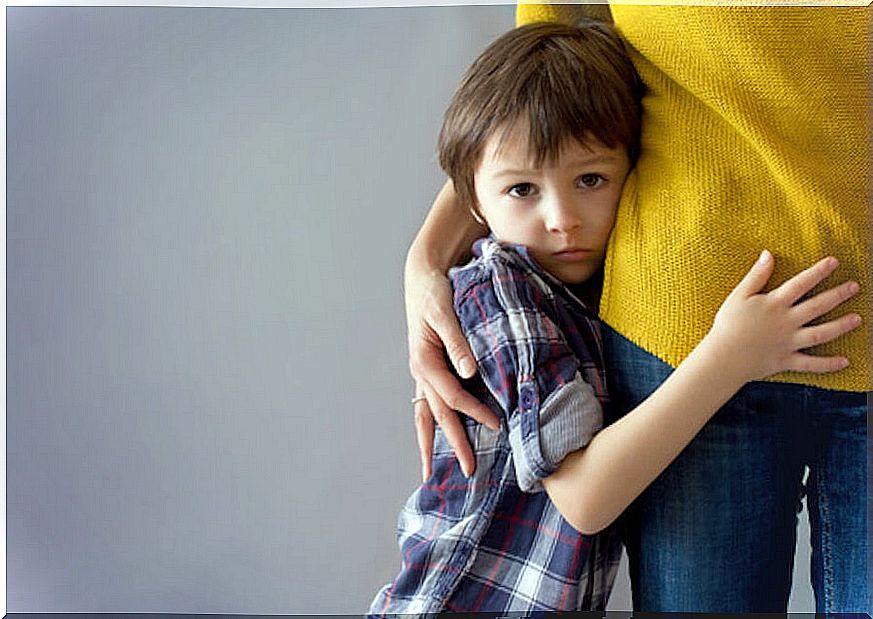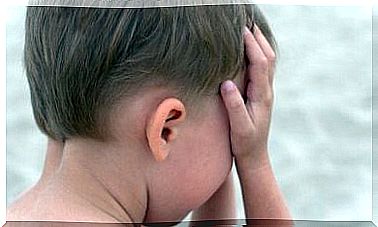Shyness In Childhood: How To Deal With It?

Being shy for some children is a serious problem. However, shyness is a personality trait of many people. During childhood, this characteristic can be part of the child’s development. For this reason, certain behaviors that manifest it are considered normal.
Although the origin of shyness can be genetic, the treatment of their parents and the environment greatly influences. Therefore, if appropriate measures are taken, the little one can overcome this genetic characteristic and be outgoing as he grows up.
In order to achieve this, it is necessary to understand what happens to the child at each stage. In this way, parents will have the necessary tools for the child to develop their abilities and not be limited by shyness.
Signs of shyness at different stages of childhood
Many children are naturally shy from birth. Much of his behavior in relation to shyness is due to his neurochemistry. That is why he becomes cautious, showing a predisposition to new situations.
First months
During their first months, some babies are more tolerant of the company of different people, even if they do not belong to their common environment. Generally, when someone smiles at them or is kind, the baby feels comfortable.
In this period, the child recognizes his parents. However, he is not empowered to identify the faces of each of them. Therefore, attending to their needs and demands for care helps to prevent them from being overly shy in later stages.

6 months old
Upon reaching six months of age, the child tends to be very suspicious. He already recognizes the faces of his parents and those who spend the most time with him. For this reason, a new face is strange or insecure. In this stage of childhood, it is very common for the child to want to feel support and security, and he looks for it in those who are already used to seeing. Thus, when these are not present, the fear of separation occurs in the child.
Many parents, fearing that the baby will develop absolute dependence, often force separation. However, that is something he must learn on his own. As he grows older, he begins to feel secure, even though he shows some shyness in one way or another.
2 years old
At two years old, children are not used to greeting strangers, they hide behind their parents, they need them to feel safe.
Although this behavior is associated with shyness, in reality children at this age are socially selective. If he does not deal with other children, it is not that he does not like it, he most likely prefers to play alone. Children are often uncomfortable taking toys off or treating each other badly, so avoiding these situations gives them peace of mind.
However, if the shyness in the different stages of childhood is excessive it could pose a problem. If he is already reaching three years of age and continues without social interest, does not play with other children, becomes insensitive to physical contact, does not express himself clearly or shows anxiety in new situations, the help of an expert may be necessary.
3 years old
From the age of three to six, the child begins to develop certain intuitive abilities, which is why it is capable of having a better interaction with others. However, this can also create certain fears in the child, which can make him more sensitive when interacting with others.
Often he becomes very concerned about what is thought of him, he cannot bear negative comments. Also, you are afraid of not meeting the expectations of your loved ones. They become self-critical, focus on their weaknesses, and think they lack the courage to face feared situations.
How can shyness be fought during childhood?
First of all, it is necessary to take into account how children express their emotions. Often the behavior, the way of playing and the pictures can give an idea of what the child is feeling. This is useful because in the initial stages, it is difficult for you to express it in words.
- Young children are often intimidated by a stranger, if they are playing they stop. To get through this awkward moment, you need to be reassured by parents. A smile, a hug or words of encouragement are of great help so that the little one feels confidence.
- Even if the child is not comfortable, it is not wise to keep him away from others. It should be helped to integrate. This social exposure is helpful, it will make you feel relaxed and stable in front of people.
- When he is a little older, at the stage where he listens and reasons with others, it is not wise to tell him that he is shy. This may seem like a criticism to you and, as a result, you may withdraw further.
- To create security, it is wiser to express that the child needs time to feel comfortable with strangers.
- It is also essential that you have realistic expectations, as shyness in different stages of childhood can be overcome. However, expecting too much of him can affect his behavior.

Is it possible to overcome shyness in childhood?
Although it is worrying, there is no way to know if a shy child will stop being shy. In many cases, shyness in the various stages of childhood has been overcome and, as they grow up, they can cope openly.
It has been determined that, as time progresses, the experience that the child acquires exceeds his genetic characteristics. Therefore, you do not have to worry. As a mother or father, you must strive to provide stability, support, and love. If you help him feel comfortable, he will have the confidence to overcome his shyness.










